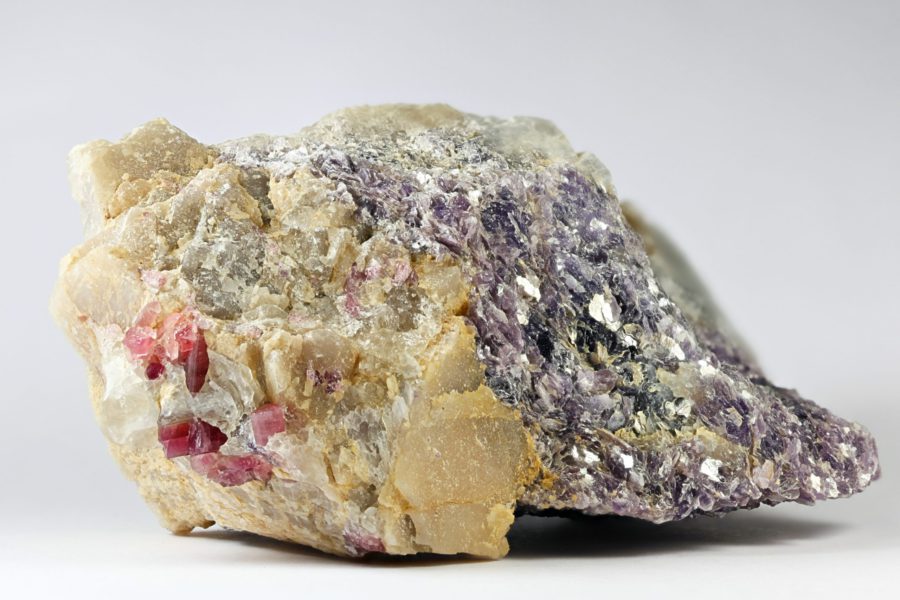China achieves breakthrough in rubidium extraction
Posted Under Commodity News, On 15-06-2025
Source: mining.com
China has achieved a technological breakthrough in the production of rubidium, the South China Morning Post has reported, as Beijing looks to expand its dominance in the critical minerals supply chain.
According to the SCMP, scientists from the Qinghai Institute of Salt Lakes (ISL), part of the Chinese Academy of Sciences (CAS), have developed a method to extract ultra-pure rubidium from brine for the first time.
In a new study cited by SCMP, the ISL researchers revealed that they were able to produce rubidium chloride at 99.9% purity of from potassium chloride material containing just 0.001% rubidium.
This breakthrough, if followed up, would bolster China’s domestic production of rubidium, reducing its reliance on foreign supply. According to customs data, the Asian nation imports about two-thirds of its rubidium, mostly from Canada, historically the world’s largest producer.
Widely used critical mineral
A silvery-white soft metal, rubidium and its compounds are used in a variety of industries, from biomedical applications and telecommunication systems to pyrotechnics and specialty glass. Due to its properties as an alkali metal like lithium, rubidium has also been touted as a potential material in sodium-ion batteries.
While rubidium is more abundant in the earth’s crust than industrial metals like copper, lead, or zinc, it’s not a major constituent of any mineral, and as such, no active mining operations are currently dedicated to rubidium..
The mineral is typically produced in small quantities as a byproduct of the processing of cesium and lithium ores taken from a few small deposits in Canada, Namibia and Zambia. In Canada, for example, the Tanco lithium-cesium mine in Manitoba has been a significant producer of rubidium, but now ceased operations.
No official data exists for rubidium production; only that these top producers have reserves totaling less than 200,000 tons, while the US does not mine any, according to US Geological Survey estimates. Due to its roles in military and aerospace applications, rubidium has been included in the US list of critical minerals. The EU and Canada have so far left it off their lists.
Reliance on imports
China, despite having a rich endowment and variety of mineral reserves and a near monopoly in many critical minerals such as rare earths, has faced substantial challenges in rubidium resource development.
The SCMP, citing a study published in China Mining Magazine, said almost all of China’s rubidium reserves (97%) are in low-grade hard rock deposits, which would make extraction difficult. The remaining 3% is found in salt lakes and geothermal waters across the Tibet autonomous region and Qinghai province.
“Although China is a major global rubidium producer, its industry relies heavily on imported ores,” He Xinyu of the China Non-Ferrous Metals Resource Geological Survey noted in the study. According to customs data, China imported about 19,500 tonnes of rubidium concentrate with a 66.3 % external procurement rate – primarily from Canada and Zimbabwe – in 2021.
Cheaper production
Speaking on the rubidium extraction breakthrough, He said the ISL researchers tackled both the “theoretical and engineering hurdles” that have prevented China from producing high-purity rubidium chloride.
“They developed a sophisticated model that revealed rubidium’s distribution patterns during potassium salt production, identifying why rubidium resists enrichment and pinpointing optimal concentration stages,” he told SCMP, adding that the model can also predict trace rubidium behaviour in complex environments.
He also noted this process could be more cost-effective compared to existing production methods. A 2022 study by another ISL research group revealed that the production cost for rubidium chloride extracted through similar processes was just one-third of the market price of the compound.
On the Shanghai Metals Market, rubidium (Rb?99.5%) is currently trading at roughly $3,000/oz.

